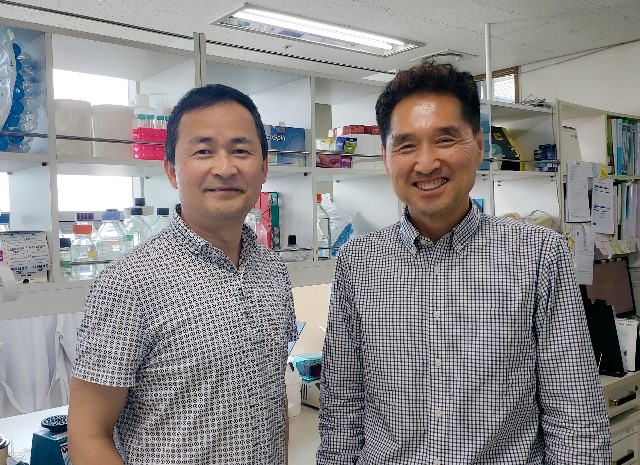College of Medicine Professor Jung Dae-won’s Team Investigates the Biological Causes of ‘Osteoporosis’ N
No.89351- Writer pr
- Date : 2021.06.29 10:19
- Views : 8938
Revealed the biological correlation of the manifestation of in-body ‘selenoprotein W’ and bone density
Published in the world renowned academic journal <Nature Communications>
Selected in the BRIC (Biological Research Information Center) ‘People Who Made Korea Shine’

YU College of Medicine Professor Jung Dae-won's (52, Microorganism Lab) research team drew international attention with his paper that investigated the biological correlation of selenoprotein and bone metabolism.
The outcomes of Professor Jung’s research team was published in the April issue of the internationally acclaimed academic journal <Nature Communications> (impact factor (IF) 12.121) through his thesis titled ‘Bone remodeling coordination according to the bone absorption osteoclast activation adjustment of selenoprotein W.’ Dr. Lee Kyung-hee and Dr. Kim Hyun-soo of the YU College of Medicine Microorganism Lab participated as the primary author and Professor Jung as the corresponding author in this research paper.
The research team studied the biological correlation of ‘selenoprotein W’, which is the smallest of the 25 selenoproteins of mammals, and bone density. Test rats without selenoprotein W showed increased bone density by suppressing osteoclast (large polynucleated cell that destroys or absorbs bone tissue that become unnecessary during the course of bone growth of vertebrates), but it was found that test rats with excessive selenoprotein W had osteoporosis due to increase of osteoclast division.
Professor Jung said, “It was found that appropriate adjustment of selenoprotein W manifestation that exists in osteoclast is related to the coordination of normal bone remodeling. The key outcome of this study was verifying the biological connection between selenium metabolism and bone metabolism,” while adding, “Selenium, which is an essential microelement in the body, is involved in normal bone metabolism adjustment. Through this study, it was found that consuming appropriate amounts of selenium is essential to prevent bone-related diseases such as osteoporosis.”
The research team also revealed their follow-up research plans by commenting, “We will analyze the role of selenoprotein W in the inflammatory osteoporosis model and ovariosteresis menopause osteoporosis model.”